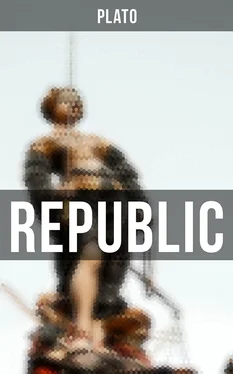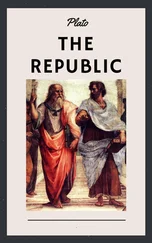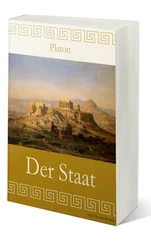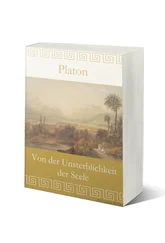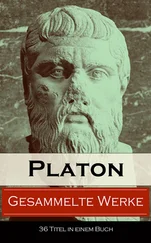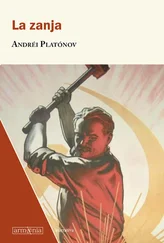Plato
Published by

Books
- Advanced Digital Solutions & High-Quality eBook Formatting -
musaicumbooks@okpublishing.info
2018 OK Publishing
ISBN 978-80-272-4684-7
Introduction
Book I Of Wealth, Justice, Moderation, and Their Opposites
Book II The Individual, the State, and Education
Book III The Arts in Education
Book IV Wealth, Poverty, and Virtue
Book V On Matrimony and Philosophy
Book VI The Philosophy of Government
Book VII On Shadows and Realities in Education
Book VIII Four Forms of Government
Book IX On Wrong or Right Government, and the Pleasures of Each
Book X The Recompense of Life
Table of Contents
There still remain to be considered some points which have been intentionally reserved to the end: (1) the Janus-like character of the Republic, which presents two faces — one an Hellenic state, the other a kingdom of philosophers. Connected with the latter of the two aspects are (2) the paradoxes of the Republic, as they have been termed by Morgenstern: (a) the community of property; (b) of families; (c) the rule of philosophers; (d) the analogy of the individual and the State, which, like some other analogies in the Republic, is carried too far. We may then proceed to consider (3) the subject of education as conceived by Plato, bringing together in a general view the education of youth and the education of after-life; (4) we may note further some essential differences between ancient and modern politics which are suggested by the Republic; (5) we may compare the Politicus and the Laws; (6) we may observe the influence exercised by Plato on his imitators; and (7) take occasion to consider the nature and value of political, and (8) of religious ideals.
1. Plato expressly says that he is intending to found an Hellenic State (Book V). Many of his regulations are characteristically Spartan; such as the prohibition of gold and silver, the common meals of the men, the military training of the youth, the gymnastic exercises of the women. The life of Sparta was the life of a camp (Laws), enforced even more rigidly in time of peace than in war; the citizens of Sparta, like Plato’s, were forbidden to trade — they were to be soldiers and not shopkeepers. Nowhere else in Greece was the individual so completely subjected to the State; the time when he was to marry, the education of his children, the clothes which he was to wear, the food which he was to eat, were all prescribed by law. Some of the best enactments in the Republic, such as the reverence to be paid to parents and elders, and some of the worst, such as the exposure of deformed children, are borrowed from the practice of Sparta. The encouragement of friendships between men and youths, or of men with one another, as affording incentives to bravery, is also Spartan; in Sparta too a nearer approach was made than in any other Greek State to equality of the sexes, and to community of property; and while there was probably less of licentiousness in the sense of immorality, the tie of marriage was regarded more lightly than in the rest of Greece. The ‘suprema lex’ was the preservation of the family, and the interest of the State. The coarse strength of a military government was not favourable to purity and refinement; and the excessive strictness of some regulations seems to have produced a reaction. Of all Hellenes the Spartans were most accessible to bribery; several of the greatest of them might be described in the words of Plato as having a ‘fierce secret longing after gold and silver.’ Though not in the strict sense communists, the principle of communism was maintained among them in their division of lands, in their common meals, in their slaves, and in the free use of one another’s goods. Marriage was a public institution: and the women were educated by the State, and sang and danced in public with the men.
Many traditions were preserved at Sparta of the severity with which the magistrates had maintained the primitive rule of music and poetry; as in the Republic of Plato, the new-fangled poet was to be expelled. Hymns to the Gods, which are the only kind of music admitted into the ideal State, were the only kind which was permitted at Sparta. The Spartans, though an unpoetical race, were nevertheless lovers of poetry; they had been stirred by the Elegiac strains of Tyrtaeus, they had crowded around Hippias to hear his recitals of Homer; but in this they resembled the citizens of the timocratic rather than of the ideal State. The council of elder men also corresponds to the Spartan gerousia; and the freedom with which they are permitted to judge about matters of detail agrees with what we are told of that institution. Once more, the military rule of not spoiling the dead or offering arms at the temples; the moderation in the pursuit of enemies; the importance attached to the physical well-being of the citizens; the use of warfare for the sake of defence rather than of aggression — are features probably suggested by the spirit and practice of Sparta.
To the Spartan type the ideal State reverts in the first decline; and the character of the individual timocrat is borrowed from the Spartan citizen. The love of Lacedaemon not only affected Plato and Xenophon, but was shared by many undistinguished Athenians; there they seemed to find a principle which was wanting in their own democracy. The (Greek) of the Spartans attracted them, that is to say, not the goodness of their laws, but the spirit of order and loyalty which prevailed. Fascinated by the idea, citizens of Athens would imitate the Lacedaemonians in their dress and manners; they were known to the contemporaries of Plato as ‘the persons who had their ears bruised,’ like the Roundheads of the Commonwealth. The love of another church or country when seen at a distance only, the longing for an imaginary simplicity in civilized times, the fond desire of a past which never has been, or of a future which never will be — these are aspirations of the human mind which are often felt among ourselves. Such feelings meet with a response in the Republic of Plato.
But there are other features of the Platonic Republic, as, for example, the literary and philosophical education, and the grace and beauty of life, which are the reverse of Spartan. Plato wishes to give his citizens a taste of Athenian freedom as well as of Lacedaemonian discipline. His individual genius is purely Athenian, although in theory he is a lover of Sparta; and he is something more than either — he has also a true Hellenic feeling. He is desirous of humanizing the wars of Hellenes against one another; he acknowledges that the Delphian God is the grand hereditary interpreter of all Hellas. The spirit of harmony and the Dorian mode are to prevail, and the whole State is to have an external beauty which is the reflex of the harmony within. But he has not yet found out the truth which he afterwards enunciated in the Laws — that he was a better legislator who made men to be of one mind, than he who trained them for war. The citizens, as in other Hellenic States, democratic as well as aristocratic, are really an upper class; for, although no mention is made of slaves, the lower classes are allowed to fade away into the distance, and are represented in the individual by the passions. Plato has no idea either of a social State in which all classes are harmonized, or of a federation of Hellas or the world in which different nations or States have a place. His city is equipped for war rather than for peace, and this would seem to be justified by the ordinary condition of Hellenic States. The myth of the earth-born men is an embodiment of the orthodox tradition of Hellas, and the allusion to the four ages of the world is also sanctioned by the authority of Hesiod and the poets. Thus we see that the Republic is partly founded on the ideal of the old Greek polis, partly on the actual circumstances of Hellas in that age. Plato, like the old painters, retains the traditional form, and like them he has also a vision of a city in the clouds.
Читать дальше
